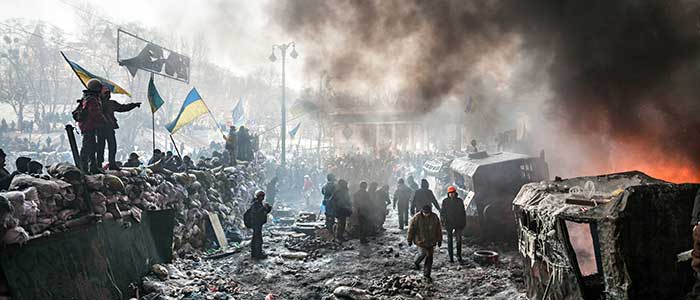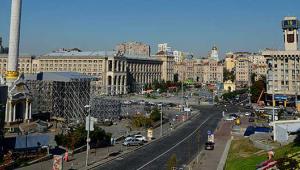Web_Ukraine_shutterstock_173329988.jpg

Mass anti-government protests in Kiev, Ukraine January 2014
Last year’s conflict, efforts to break structural ties with Moscow and ongoing tensions between pro-Russian separatists and the Ukrainian government plunged the country into deep and lasting recession.
David Lipton, first deputy managing director and acting chair of the IMF’s executive board, said “notwithstanding a strong policy-led adjustment effort” and the strong resolve of Ukraine’s authorities, the economy continues to suffer.
A four-year extended arrangement under the IMF’s extended fund facility to support the authorities’ economic programme, worth approximately $17.5bn in total, has therefore been approved. Around $5bn, earmarked for budget support, will be released immediately.
The Ukrainian government’s programme aims to put the economy back on the path to recovery, restore external sustainability, strengthen public finances and support economic growth by implementing structural and governance reforms.
Lipton said the authorities in Ukraine recognise that strong policies and reforms and their “resolute implementation” is crucial to restoring confidence and growth, bringing down inflation and external deficits and replenishing international reserves.
They also understand the need for fiscal consolidation, he said, and have taken action such as expenditure-led adjustment towards this purpose. They are working to improve the sustainability of the pension system and reform public employment, healthcare and education.
A debt operation will help secure programme financing and restore debt sustainability, and there are plans in place to eliminate large losses on behalf of state-owned oil and gas company Naftogaz. The company will be restructured, collection rates will be improved and tariffs will be increased, although funding to protect the most vulnerable from the impact of this will be raised.
Lipton said that while the programme is subject to “exceptional risks” especially from the conflict in the East of the country, the crisis also provides an opportunity for the government to “make a decisive break from the past and implement reform-orientated and sustainable policies”.












